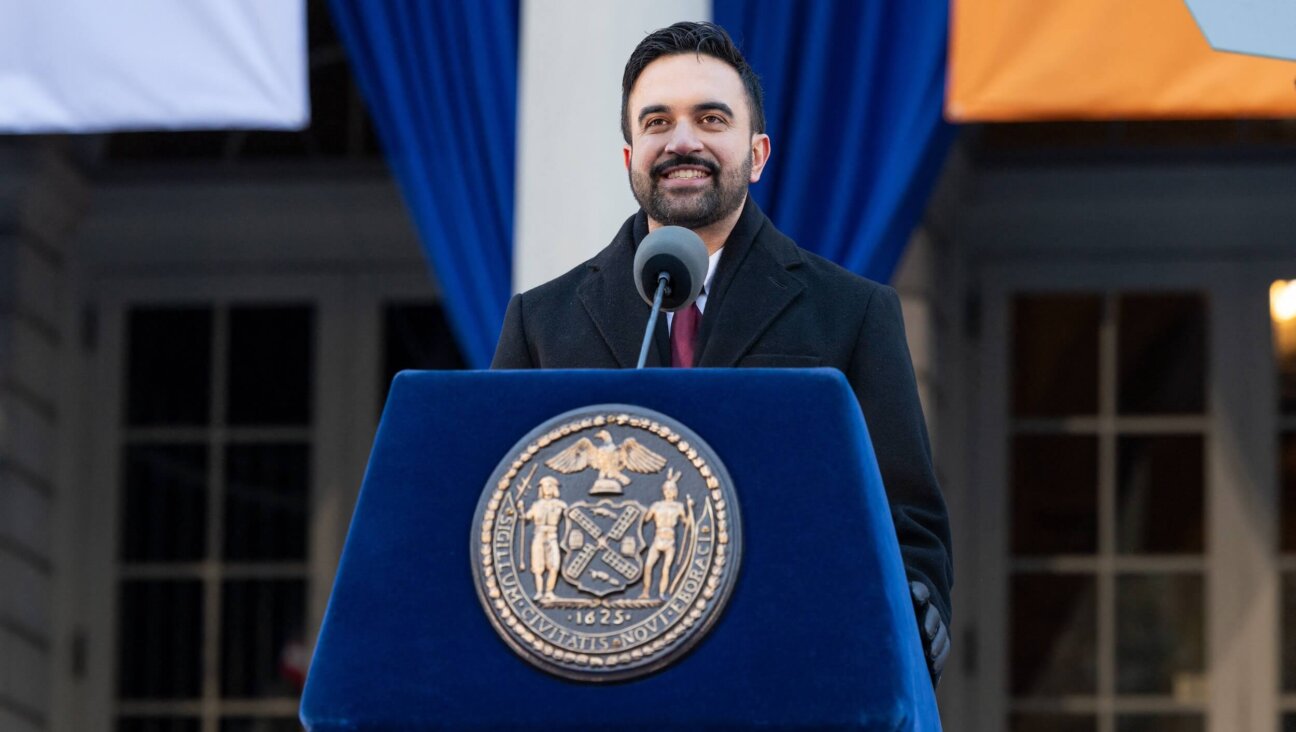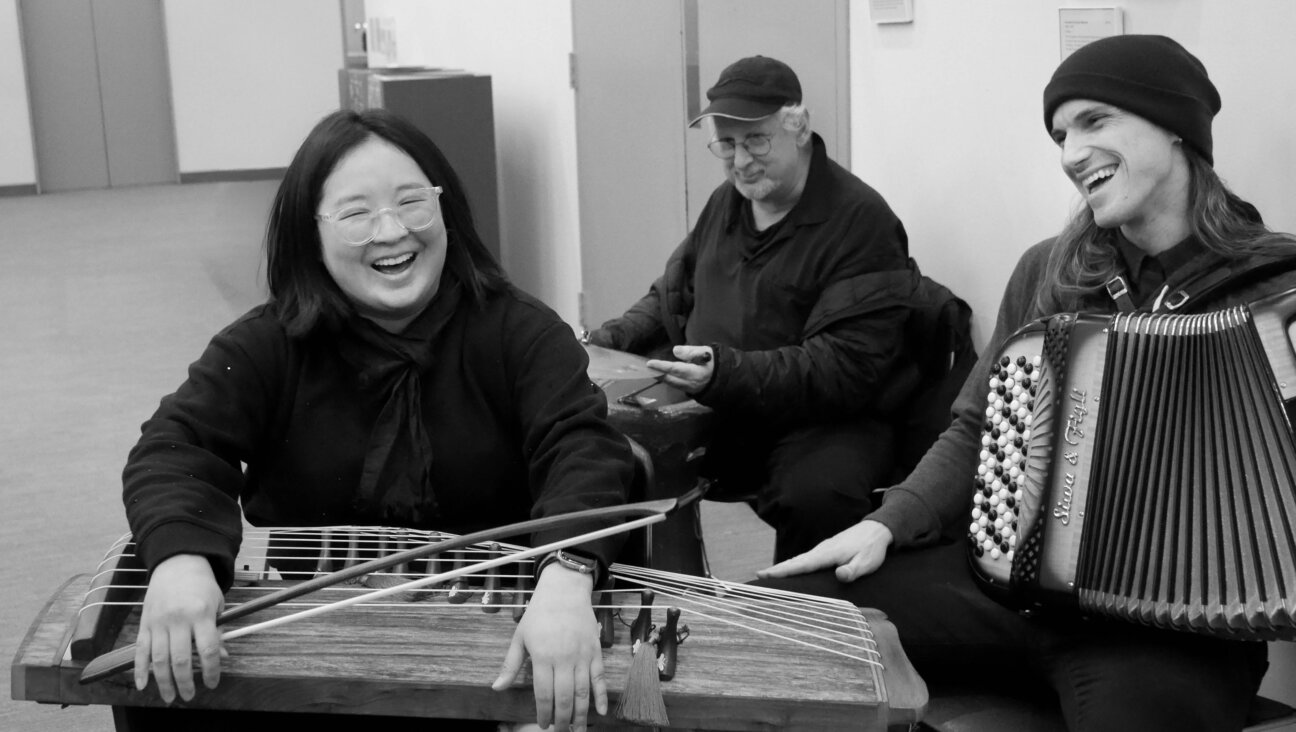Former Secretary of Defense Puts Up Mezuza After D.C. Rabbi Reaches Out
Washington – Former secretary of defense William Cohen had long had a mezuza sitting around his house, but it was only during the recent High Holy Days that he got around to putting it up on his door.
Cohen grew up going to synagogue, but after being spurned by his childhood rabbi, he distanced himself from the faith. The distance closed this year when a young, ambitious Washington rabbi called up Cohen and invited him back into the fold. As the first step, the rabbi went to Cohen’s apartment the night before Yom Kippur and helped install the old mezuza.
“I’ve been waiting for this call for years,” Cohen told the rabbi, Shmuel Herzfeld, after the initial contact was established. He later told the Forward that he also plans to take up the rabbi’s offer to attend synagogue.
Cohen, 67, is, of course, most famous for his three years as Bill Clinton’s secretary of defense — the only Republican in Clinton’s Cabinet. Since retiring from politics, though, Cohen has been pushing his cultural bona fides. He has written a fictional thriller, and early this year he co-authored with his wife, Janet Langhart Cohen, the book “Love in Black and White,” which depicts the Cohens’ experience as an inter-racial couple in America.
In an interview this week, Cohen stressed that he feels he is not reconnecting to Judaism but rather creating a more deeply informed fusion between his different identities. “We are more spiritual than affiliated with one religion or another,” he said.
Last year, the couple celebrated both Christmas and Hanukkah. They also attend other Jewish festivities with friends and neighbors.
Cohen himself comes from a marriage between a Russian Jewish baker and an Irish Protestant woman. The family lived in Bangor, Maine, and Cohen went to the local Hebrew school every Sunday for six years, where he was a top student. When bar mitzvah time came, however, the rabbi refused to allow Cohen to undergo the ceremony, demanding that he first convert to Judaism.
Cohen was offended by the refusal, and so he parted with Jewish studies. “As a teenager, I had an experience with a certain rabbi who was probably too conservative, but I have left that behind me,” Cohen said this week.
Cohen’s other childhood encounters with Judaism were also not uniformly positive.
“When you’re not part of the Jewish community but you still carry the quintessential Jewish name, it is sometimes challenging.” Cohen said. “For the gentiles, I was always Jewish.” He remembers being a target of antisemitic slurs when playing basketball in Maine.
For the Jewish establishment, on the other hand, Cohen was never Jewish enough, though he says he always had Jewish friends and still walks around with a ring bearing his Hebrew name, Ze’ev.
Cohen, a lawyer, was initially elected to congress in 1972. He was the first Republican to support the move to impeach Nixon from his presidency, and after three terms in the House he was elected to the Senate, where he served for 18 years before the appointment by Clinton.
As a politician, Cohen was considered to be friendly to Israel and to pro-Israeli activists, though in 1981 he did vote in favor of selling surveillance planes to Saudi Arabia, a deal that infuriated the pro-Israel lobby in Washington. Since leaving politics, Cohen has started his own consulting firm, The Cohen Group.
It was Cohen’s wife who revived his interest in Judaism. Langhart Cohen’s parents had worked at a Jewish household in Indianapolis when she was a child, and “she grew up with a lot of Jewish background,” Cohen said. She even knew many of the Jewish traditional dishes that Cohen’s father grew up eating in Russia.
Last winter, the couple bought their first menorah and lit the Hanukkah candles. Langhart Cohen found the family mezuza, which had never been posted, and gave it to Herzfeld when he visited the family last month.
“She is very eager to embrace the Jewish culture and traditions,” Cohen said of his wife.
Herzfeld, the rabbi who finally got to the Cohens, has developed a reputation for reaching Washingtonians who have few ties to Judaism.
“Some people in this town have extensive Rolodexes,” Herzfeld told congregants at Ohev Sholom – the National Synagogue, during his Kol Nidre sermon. “I, too, have an extensive Rolodex. Mine is of people who do not return my calls or respond to my e-mails.”
Herzfeld is a Modern Orthodox rabbi, but he has used tactics that might be more familiar to the aggressive outreach associated with the Chabad-Lubavitch ultra-Orthodox sect. This week he set up a sukkah at a busy intersection on K Street, Washington’s political lobbying corridor. Last year during Hanukkah, Herzfeld was seen spinning dreidels at the Farragut North Metro station, trying to draw the attention of downtown commuters.
Herzfeld says that he is used to being turned down. But that was not the case with the Cohens. It was Langhart Cohen who responded to his e-mail, inviting Herzfeld for a visit.
Herzfeld said he knew that under Orthodox law, Cohen would not be considered Jewish, but he wanted to “to try and fix the pain that was caused to him as a result of his previous encounter with Judaism.”
More than that, Herzfeld said that Cohen has “Zera Yisrael — the seed of Israel; that he has a Jewish soul.”
In his meeting with Cohen, he told the former secretary of defense how sorry he was for losing him as part of the Jewish people.
“The tragedy is that if they had only seen your potential, we could have had another rabbi for our people. The world got a secretary of defense, but the Jewish people could have had a great rabbi.”















